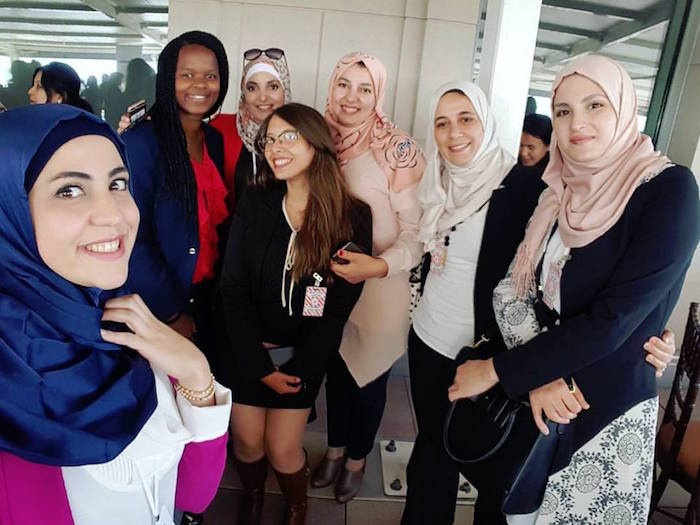Lebanese entrepreneurs, move out of the city

Hellish rush hour is nothing new to those who live or work in Beirut.
However, road traffic fatalities, which reached 1,088 in 2015, and the daily stress, are just two factors that could push entrepreneurs out of the city. Other include the inability to create an added value in a saturated market and the higher salary demands of employees in the city.
“We are an extension to the ecosystem. The city [Beirut] can’t accommodate new initiatives anymore. I specifically chose to remain in Byblos because we want to encourage decentralization,” says Tarek Matar, founder of Neopreneur.
For Matar there is no need to be in Beirut. His initiative launched in 2014 aims to support entrepreneurs in Byblos, north of Lebanon, through two main programs: The Road to Entrepreneurship and Stairway to Success. They are located in the old souks and offer other services including a coworking space, a business support area, mentorship, coaching and access to finance with licensing support.
And Matar is not alone in his thinking.

The mountains are calling
Only couple of hours away from Beirut, is the beautiful Shouf, home to some of the oldest cedar trees and an astonishing nature reserve. Since 2015, Haitham Saab, founder of Shouf Entrepreneur, a non-profit initiative that supports entrepreneurs in Shouf, has been working on introducing capacity building for youth, rural entrepreneurship and how to execute ideas, female empowerment and SME support.
Saab’s first activity took place in his village Kahlounieh and attracted just five acquaintances who showed up for support.
Since then Saab, who is also the founder and CEO of software development company Techgenies, has organized over 30 events in 20 villages and was able to recruit around 100 ambassadors from the Shouf area.
Events have included an innovation camp at Baakline National Library, an entrepreneurship workshop at NDU University in Shouf, and a Silicon Valley mindset workshop. His partners have included UK Lebanon Tech Hub, youth empowerment organization Injaz, Al-Mawarid Bank and Berytech.
During the launch of the Women Empowerment Program in Baakline, Shouf. (Video via Shouf Entrepreneurs)
Part of his work has also been to link college graduates from the Shouf with employers. Saab started a Facebook group in 2015 to link job seekers with job opportunities in the area. The group now has over 4,000 members. Saab hopes to eventually replicate this model for other rural areas in Lebanon, like the Beqaa Valley.
From coast to coast
Go a little to the North of Lebanon and you hit Tripoli. As Lebanon’s second biggest city it has become home to several initiatives supporting entrepreneurs.
Tripoli Entrepreneurs Club, led by Fadi Mikati and launched in 2013, is an organization that supports entrepreneurs in the city. Since its inception, the club has organized various events including outdoor bootcamps, a Startup Seeds Acceleration Program and Startup Skills Program. The latter is a five-day workshop targeting senior students and graduates.
Mikati is also part of the Global Shapers Community, a network of hubs led by people who are creating impact in their societies. In January, he returned home from The World Economic Forum in Davos, Switzerland, after giving a session on Generation Changes and enjoying the slopes.

“I focused on how we turned challenges into opportunities,” he told Wamda. “How we can scale this model to become more impactful and how social media helps non-governmental organizations and local communities,” he explained.
Giving back to the locals
Tripoli-based entrepreneur Rayan Al Zahab, hoped to break the stereotypes associated with Lebanon, and the Middle East in general, when she participated at a Tech Women forum in San Francisco, an initiative launched by the U.S. Department of State's Bureau of Educational and Cultural Affairs.
After applying and being accepted, she flew to represent Lebanon and her startup Bamboo Geeks, a coding workshop for senior students and fresh graduates she officially launched in July 2016. Part of the event’s goals were to have participants train at big companies in Silicon Valley.

Al Zahab, who also launched a Google Developers Group in Lebanon in February, described her experience as eye-opening.
Her first workshop, as Bamboo Geeks, was in summer 2016, at the Lebanese International University in Akkar, north of Lebanon. Twelve selected students learned how to develop a mobile app and a database, document their work and work with a team.
Even though she self-funded the first workshop, she hopes to raise a round of funding from an NGO to help her organize the upcoming ones.
In the future, she aims to match the trainees with potential employers and companies in Tripoli.
Replicating the movement
These initiatives are helping the younger generation look at things from a new perspective and with almost half of the universities located outside of the capital, there are plenty of opportunities for fresh graduates and startups looking to hire.
For Mikati replication is a real possibility, it just requires experts willing to volunteer. For Najwa Sahmarani, cofounder of Tripoli Entepreneurs Club, it’s about building up the community. For Saab, it’s about attracting the right supporters. He was approached by Unicef who wanted him to turn Shouf Entrepreneurs, which doesn’t have a legal entity yet, into a non-governmental organization in order to be able to support him.
Drastic changes in the mentality and ecosystems in rural areas may take years to fully develop, but such initiatives will be the stepping stone for the generations and initiatives to come.
(Feature image via Beirut.com)


